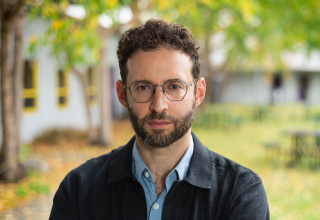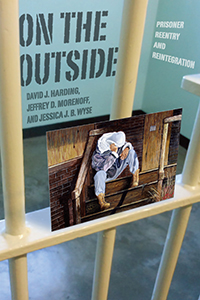
Berkeley’s Sociology Department is known around the world for its excellence in research and teaching. Our faculty advance cutting edge research and teach in most sociological specialities. Our PhDs are leaders in universities and research centers across the US and in many other countries. And our BAs populate the ranks of innumerable professions, bringing with them the skills and special perspective of Berkeley sociology.
We are proud to make these contributions from the world’s leading public university. At Berkeley, we combine intellectual rigor with a commitment to public service through our research, teaching, and service on campus and beyond.
For the past six decades, Berkeley’s Sociology Department has consistently been ranked among the world’s top sociology departments. Our graduate program is ranked #1 in the latest U.S. News and World Report, and our undergrad degree is currently the best in the US according to College Factual and features on Grad Reports’ Best College List 2020.

Prof. Einstein served graduate students as a model of prudence in remaining unfashionably true to the grand…
On the Outside: Prisoner Reentry and Reintegration
America’s high incarceration rates are a well-known facet of contemporary political conversations. Mentioned far less often is what happens to the nearly 700,000 former prisoners who rejoin society each year.On the Outside examines the lives of 22 people—varied in race and gender but united by their time in the criminal justice system—as they pass out of the prison gates and back into society. The book takes a clear-eyed look at the challenges faced by former prisoners as they try to find work, housing, and stable communities. Standing alongside the...
Departmental Colloquium Series
Matthew Clair, " The (in)dignity of state governance: Ethnographic and quasi-experimental evidence from the margins"
Wednesday, November 19th, 2025 at 2:00 pm - 3:30 pm
Blumer Room - 402 Social Sciences Building and via zoom
Abstract:
When race-class marginalized people strive to access state bureaucracies, they often experience indignity, or a perceived lack of worth and autonomy. This talk argues that indignity in state governance is constituted and reproduced relationally, with implications for inequality and social policy. Two studies build this argument. First, drawing on insights from a court ethnography of attorney-client relationships in Boston, I show how interactions with lawyers constitute indignity among disadvantaged defendants in ways that likely shape their legal outcomes. Second, I present findings from a multi-method study in Silicon Valley that examined—and sought to implement—defendants’ visions for changing the attorney-client relationship. Based on their visions, I designed and implemented a “systems navigator” program for felony clients in the San Jose public defender’s office. Leveraging the program’s quasi-experimental design, analysis of administrative and survey data finds that assignment to a navigator is associated with enhanced perceptions of dignity. Analysis of interview and ethnographic data uncovers five dignity-affording tasks enacted by navigators: building rapport, giving voice, explaining the process, bridging gaps with bureaucrats, and navigating spaces. I conclude with implications for theories of poverty governance and the value of policy interventions envisioned by marginalized people.



